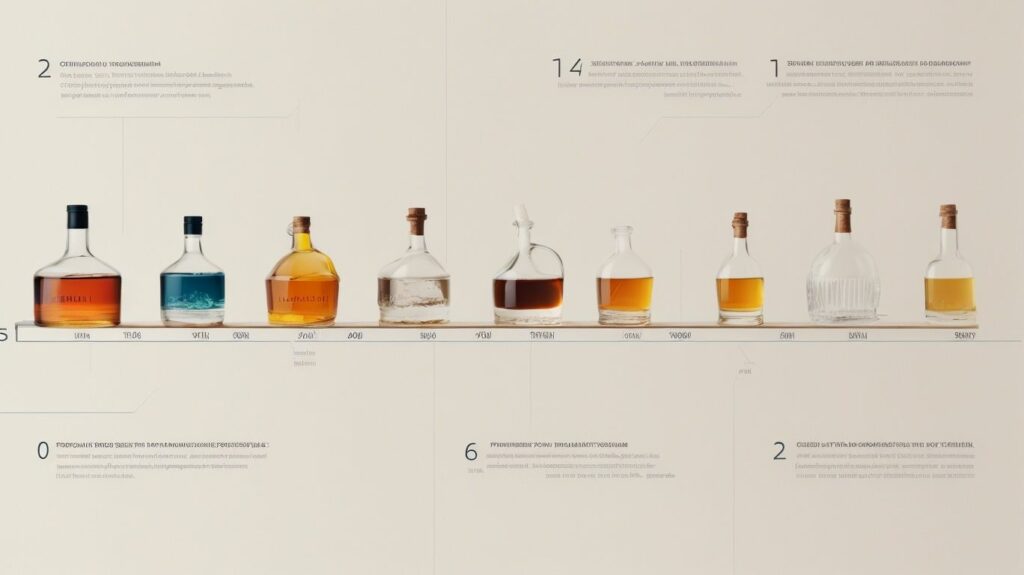20+ Years Experience
Specialist Alcohol Help

Alcoholism, a complex and multifaceted condition, affects countless individuals worldwide. While many are aware of the dangers associated with excessive alcohol consumption, few understand the intricate web of factors that contribute to the development of alcoholism.
This blog post delves into the causes of alcoholism, unravelling the genetic, environmental, and psychological influences at play.
Alcoholism, also known as Alcohol Use Disorder (AUD), is a chronic condition that involves excessive alcohol consumption, often influenced by an individual’s drinking habits.
This disorder has various risk factors, such as genetics, environment, and psychology, that contribute to its development.
Alcoholism can have detrimental effects on cognitive, emotional, and physical well-being, with serious consequences for both the individual and their loved ones.
Alcoholism is a progressive condition, typically advancing from occasional drinking to dependence and addiction.
Factors such as tolerance, where an individual needs increased amounts of alcohol to achieve the same effects as before, play a significant role in this progression.
Understanding the stages of alcoholism and the factors that contribute to its development is crucial in addressing this pervasive issue.
Alcohol Use Disorder (AUD) is characterised by difficulties in controlling alcohol consumption, preoccupation with alcohol, and continued use of alcohol despite negative consequences.
AUD can range from mild to severe, depending on the severity of symptoms experienced. These symptoms may include physical and mental health complications, social issues, and financial difficulties.
Recognising the signs of AUD is essential in seeking appropriate help and treatment.
It is crucial to note that while alcohol consumption is socially acceptable in many cultures, unhealthy alcohol use poses a risk to one’s health or safety and can lead to other alcohol-related issues.
Understanding the distinction between moderate drinking and unhealthy alcoholism can help individuals make informed decisions about their drinking habits and identify when professional help may be necessary.
Alcoholism progresses through various stages, beginning with experimentation and culminating in alcohol dependence and, ultimately, recovery.
The progression of alcoholism often involves an individual developing a tolerance to alcohol, requiring increased amounts to achieve the same effects as before.
As alcohol consumption becomes more frequent and excessive, the risk of dependence and alcohol addiction increases.
In the terminal stage of alcoholism, an individual may experience severe psychological and medical complications of liver disease, such as liver damage, heart disease, and cancer.
Early intervention and treatment are critical in preventing the devastating consequences of alcoholism and helping individuals regain control over their lives.
Genetics play a significant role in the development of alcoholism, with family history and specific genes contributing to the risk.
Research indicates that genetics and family history account for around 50% of the likelihood of alcohol use disorder.
Understanding the genetic risk factors often associated with alcoholism can help individuals identify their own risk factors for alcoholism and take preventive measures to maintain a healthy relationship with alcohol.
It is important to recognise that while genetics and family history are important factors in the development of alcoholism, they are not the sole determinants.
Environmental and psychological factors also contribute to an individual’s risk of developing AUD and understanding the complex interplay between these factors is essential in addressing alcoholism.
A family history of alcoholism is associated with an increased risk of developing alcohol use disorder, likely due to genetic and environmental influences.
Individuals with a family history of alcoholism may share genetic and environmental factors that increase their vulnerability to AUD, making them more susceptible to developing alcohol-related problems.
It is crucial for individuals with a family history of alcoholism to be aware of this increased risk and take proactive steps to minimise their exposure to environmental factors that may exacerbate their susceptibility to AUD.
By understanding the role of heredity in alcoholism, individuals can make informed decisions about their alcohol consumption and seek support if necessary.
Multiple genes have been identified that influence the risk of alcoholism, with complex interactions between them.
These genes can contribute to an individual’s risk of physical dependence, withdrawal symptoms, and dopamine production in the brain.
While the exact number of genes that affect the risk of alcoholism is still being determined, it is clear that genetic factors play a significant role in the development of AUD.
Understanding the genetic factors associated with alcoholism can help individuals and healthcare providers develop personalised prevention and treatment strategies.
By recognising the complex interplay between genes and other risk factors, individuals can better understand their vulnerability to developing alcoholism and take appropriate steps to maintain a healthy relationship with alcohol.
Environmental factors, such as family dynamics and cultural norms, can contribute to the development of alcoholism.
These factors can shape an individual’s attitude towards drinking and influence their likelihood of developing alcohol-related problems.
Recognising the role of environmental factors in alcoholism is essential in developing comprehensive prevention and treatment strategies.
It is important to note that environmental factors are not the only determinants of alcoholism risk factors. Genetic and psychological factors also play a significant role in an individual’s susceptibility to AUD.
Understanding the complex interplay between these causes and risk factors can help individuals and healthcare providers develop personalised prevention and treatment strategies.
Growing up in a family where heavy drinking is practised or encouraged increases the likelihood of developing alcoholism.
This increased risk is likely due to shared genetic and environmental influences that make individuals more susceptible to AUD.
Studies have shown a clear link between family wealth and alcohol consumption. Those with greater wealth appear to be more likely to consume alcohol heavily and more likely to also develop alcoholism and its related use disorders.
It is crucial for parents and guardians to communicate the risks of heavy drinking to their children and establish clear expectations and boundaries.
By fostering a healthy relationship with alcohol and providing support and guidance, parents can help their children avoid the pitfalls of alcoholism.
Cultural and social factors, such as peer pressure and the prevalence of alcohol in society, can affect the risk of developing alcoholism.
For example, certain sub-cultures may be more prone to alcohol abuse, with members often encouraging one another to drink as a way to gain acceptance.
Similarly, societal acceptance of some alcohol use can create an environment where unhealthy alcohol consumption is normalised.
To mitigate the risk of alcoholism, it is essential to recognise the role of cultural and social influences and develop strategies to resist peer pressure and maintain a healthy relationship with alcohol.
By understanding the impact of these various causes and risk factors on their drinking habits, individuals can make more informed decisions about their alcohol consumption and seek support when necessary.
Psychological factors, such as mental health conditions and stress, can trigger alcoholism as individuals may use alcohol to cope.
Mental health issues like depression and anxiety can increase the risk of alcoholism, as individuals may attempt to self-medicate with alcohol.
Recognising the role of psychological factors in alcoholism is crucial in developing effective prevention and treatment strategies.
It is important to note that while psychological factors can contribute to alcoholism, they are not the sole cause. Genetic and environmental factors also play a significant role in an individual’s vulnerability to AUD.
Understanding the complex interplay between these factors can help individuals and healthcare providers develop personalised prevention and treatment strategies.
Mental health issues, such as depression and anxiety, can increase the risk of substance abuse, particularly alcoholism, as individuals may attempt to self-medicate with alcohol.
In fact, around 20% of individuals with depression have an abusive or dependent relationship with alcohol. It is essential to recognise the link between mental health disorders and alcoholism to provide appropriate support and treatment for individuals struggling with both conditions.
Treatment for co-occurring alcohol abuse and mental health conditions, such as depression, bipolar, and schizophrenia, typically involves addressing the mental health condition to reduce symptoms and find healthier ways of coping.
By addressing the underlying psychological factors contributing to alcoholism, individuals can develop healthier coping strategies and maintain sobriety.
Stressful life events and a lack of healthy coping strategies can lead to alcohol abuse and addiction. Using alcohol as a coping mechanism for stress may provide temporary relief, but it can also contribute to feelings of depression and make stress harder to manage in the long term.
Developing healthy coping mechanisms is crucial in preventing alcohol abuse and drug addiction.
Some effective coping strategies for stress include exercise, meditation, engaging in hobbies, and seeking support from friends, family, or a mental health professional.
By employing healthy coping mechanisms, individuals can better manage their stress levels and reduce their risk of developing alcoholism.
Early alcohol consumption, including underage drinking and binge drinking, increases the risk of developing alcoholism later in life.
The National Institute on Alcohol Abuse and Alcoholism conducted research on emerging adult drinking behaviour and the results revealed that those who started drinking at the age below 15 had four times more potential to be addicted to alcohol than those who began drinking before initiated after the legal age. Such age can be considered a critical factor in their own alcohol addiction.
Understanding the link between early drinking and alcoholism risk is crucial in developing effective prevention strategies.
It is essential for parents, educators, and healthcare providers to recognise the risks associated with early drinking and implement strategies to prevent underage and binge drinking.
By addressing the factors that contribute to early alcohol consumption, we can help reduce the risk of alcoholism and its associated consequences.
Underage drinking is defined as the consumption of alcohol by individuals under the legally mandated drinking age.
This behaviour poses significant risks, including decreased academic achievement, heightened risk of injury, and increased likelihood of participating in hazardous activities.
Furthermore, underage and drinking alcohol, or drinking too much alcohol, significantly increases the probability of developing Alcohol Use Disorder (AUD).
To discourage underage drinking, it is crucial for parents and guardians to communicate the risks to their children and establish clear expectations and boundaries.
In addition, schools and communities can implement prevention programs that educate young people about the dangers of underage drinking and provide support for those struggling with alcohol-related issues.
Binge drinking is a pattern of excessive alcohol consumption in a short period of time. For males, this is defined as five or more drinks within two hours and for females, four or more drinks within the same timeframe.
This behaviour can result in injuries, violence, liver diseases, and cancer. Additionally, binge drinking contributes to the development of alcoholism, a chronic condition characterised by a strong desire for alcohol, lack of control over consumption, and physical dependence.
Recognising the risks associated with binge drinking is critical in preventing alcoholism and its associated consequences.
By implementing effective prevention strategies more alcohol, and providing support for individuals struggling with alcohol problems or with binge drinking, we can help reduce the risk of alcoholism and promote healthier drinking habits.
Recognising the symptoms of alcoholism and seeking appropriate treatment is crucial for recovery. The signs of alcoholism may include increased alcohol consumption and the prioritisation of alcohol over other activities.
Identifying these symptoms can help determine if professional help medical treatment is needed, and treatment options for alcoholism include therapy, support groups, and rehabilitation programs.
Early intervention and treatment are critical in preventing the devastating consequences of alcoholism and helping individuals regain control over their lives.
By addressing the underlying causes of alcoholism and providing support for individuals struggling with AUD, we can foster a healthier relationship with alcohol and promote long-term recovery.
Identifying the signs of alcoholism, such as increased drinking and prioritising alcohol over other activities, can help determine if professional help is needed.
Other indicators of alcohol use disorder may include craving alcohol or intense desire to drink, alcohol withdrawal, lack of control over consumption, physical dependence, tolerance, and continued alcohol use disorders despite negative outcomes.
Another sign of alcohol abuse would be symptoms of bipolar disorder or any sudden and drastic changes in behaviour overall.
Recognising these symptoms early age is essential in seeking appropriate help and treatment for alcoholism.
By addressing the signs of alcoholism causes and AUD, individuals can take the necessary steps to regain control over their lives and maintain sobriety.
Treatment options for alcoholism include therapy, support groups, and rehabilitation programs, which can help individuals develop coping strategies and maintain sobriety.
Alcohol treatment can assist in addressing potential contributing factors, such as psychological, emotional, or social issues, and target mental health issues like anxiety and depression, which are often the instigators of alcohol misuse.
Support groups, such as Alcoholics Anonymous, provide a safe and supportive environment for individuals to discuss their experiences and learn from one another.
These groups can be instrumental in fostering a sense of community and accountability, helping individuals maintain their sobriety and prevent relapse.
By exploring various alcohol treatments and options and finding the right approach, individuals can overcome the challenges of alcoholism and lead fulfilling, healthy lives.
Alcoholism can have multiple causes, other factors such as genetics, environment, mental health issues, a history of alcohol use disorders, trauma, social and cultural factors alcohol ads and peer pressure.
All of these can contribute to developing an addiction to alcohol.
Alcohol use disorder is often a result of regular binge drinking or heavy drinking over an extended period, particularly if it begins at an early or young age.
This can lead to physical and psychological dependence on alcohol, which can have serious consequences for the individual’s mental health disorder, and well-being.
Unfortunately, alcohol can be used as a coping mechanism.
But its long-term consequences such as mental disorders often outweigh the temporary relief it provides.
A family history of alcoholism increases the likelihood of an individual developing Alcohol Use Disorder, due to shared genetic and environmental factors within the family.
These factors can include a shared genetic predisposition to alcohol addiction, as well as environmental and cultural factors, such as exposure to alcohol in the home, or a family culture that normalises or encourages drinking.
Mental health conditions can play a significant role in alcoholism as people may use alcohol to cope with depression and anxiety.
Additionally, mental health issues can increase the risk of developing an addiction to alcohol according to the mental health services administration.
In conclusion, alcoholism is a complex condition influenced by a myriad of factors, including genetics, environment, and psychology.
Recognising the signs of alcoholism and seeking appropriate treatment options, such as therapy, support groups, and rehabilitation programs, is crucial for long-term recovery.
By understanding the causes of alcoholism and implementing effective prevention strategies, individuals can foster a healthier relationship with alcohol and lead more fulfilling lives.
There are a range of other services that we can provide. Have a look at the list below for more information:











































































































































We Aim To Reply To All Enquiries With-in 24-Hours